"Because we share nothing so completely as our ocean, each of us also shares the responsibility to protect it.” ~ US Secretary of State John F. Kerry
In Washington D.C. last week I attended the Our Ocean conference hosted by US Secretary of State John Kerry at The State Department and the affiliated Ocean Leadership Summit hosted by Georgetown University. Following the main events, I spoke on a panel at the French Embassy for an event on climate, ocean preservation and scientific cooperation with Fabien Cousteau (Ocean Conservationist, Mission 31), Dr. Sylvia Earle (Oceanographer, National Geographic Explorer-in-residence, former NOAA Chief Scientist), Dr. Margaret Leinen (Director of Scripps Institution of Oceanography, University of California, San Diego, and UCSD’s Vice Chancellor for Marine Sciences), Dr. Françoise Gaill (Research Director at CNRS, Scientific Committee Coordinator of the Ocean & Climate Platform), and Bertrand Delorme (PhD candidate, Stanford).
In Washington D.C. last week I attended the Our Ocean conference hosted by US Secretary of State John Kerry at The State Department and the affiliated Ocean Leadership Summit hosted by Georgetown University. Following the main events, I spoke on a panel at the French Embassy for an event on climate, ocean preservation and scientific cooperation with Fabien Cousteau (Ocean Conservationist, Mission 31), Dr. Sylvia Earle (Oceanographer, National Geographic Explorer-in-residence, former NOAA Chief Scientist), Dr. Margaret Leinen (Director of Scripps Institution of Oceanography, University of California, San Diego, and UCSD’s Vice Chancellor for Marine Sciences), Dr. Françoise Gaill (Research Director at CNRS, Scientific Committee Coordinator of the Ocean & Climate Platform), and Bertrand Delorme (PhD candidate, Stanford).
The concurrent two-day events, Our Ocean and the One Future Leadership summit, were jam-packed with activities from early morning breakfast meetings to late night working dinners all focused on solving our oceans most urgent problems with leading scientists and policy makers from around the world.
The first day ended with a concert at the Kennedy Center for visiting dignitaries (and student attendees!) featuring singers Grace Potter and Norm Lewis. The last time I was in the Kennedy Center’s Eisenhower theatre I was performing in Washington Ballet’s Romeo and Juliet. After the concert, I waited around the corner from the stage door, under the Center’s iconic huge golden pillars, for my mom, who picked me up just like she did countless times during that performance nine years ago.
The second day ended with dinner at the French Ambassador’s residence with the other panelists and Segolene Royal, France’s Minister of Environment, Energy and Marine Affairs, and President of COP21.
The second day ended with dinner at the French Ambassador’s residence with the other panelists and Segolene Royal, France’s Minister of Environment, Energy and Marine Affairs, and President of COP21.
I arrived at the conference with little expectations; if anything I was feeling discouraged about the state of our ocean. I left, however, feeling more educated, inspired and optimistic than ever about our ocean’s future. Secretary Kerry reported that during the conference $5.24 billion was committed towards sustainable oceans from a combination of governments and foundations. He emphasized his deep personal connection the ocean (he grew up sailing) and alarming facts about the ocean. For example, it will contain more plastic than fish by weight in 2050 if we do not change our ways (on a bus I sat next to the State Department that proudly wrote that fact into his speech; everyone can help in this fight!). I asked Secretary Kerry about the US’s commitment to the ocean, especially regarding the Law of the Sea Convention, last spring when he gathered Rhodes and Marshall scholars at a pub in Oxford (that story here). I knew he was dedicated to ocean issues, but I hadn’t realized the full extent of his work, nor did he necessarily allude to all of it in that first response. Now I am really impressed. President Obama expressed the same sentiment:
Also at the conference, nations committed to designating 1.5 million square miles of ocean as a marine protected area (MPA). Yet MPA designation doesn’t necessarily mean protection in practice. It must be monitored and enforced; otherwise it is a “paper park.” Plenty of attendees, including Secretary Kerry, acknowledged this, and solutions were discussed, combining new technology with policing. These are works-in-progress; but are an excellent start.
Secretary Kerry announced key features of his Safe Ocean Network, which aims to build a global community to better combat illegal fishing. “Various nations are working hard to track and address illegal fishing, but the fact is no nation is currently capable of policing the entire range of the oceans,” he said. Enforcement is where technology can play a huge role in how we manage and protect the oceans, so this gets into my particular area of interest. Various uniformed members of the military explained aspects of the Safe Ocean Network, as well as representatives from partners including Google, SkyTruth, and Oceana. It was a beautiful example of public and private sectors working together for a common goal. This diagram (that I can't find online; pardon bad quality scan) explains the facets of their operations well:
Secretary Kerry announced key features of his Safe Ocean Network, which aims to build a global community to better combat illegal fishing. “Various nations are working hard to track and address illegal fishing, but the fact is no nation is currently capable of policing the entire range of the oceans,” he said. Enforcement is where technology can play a huge role in how we manage and protect the oceans, so this gets into my particular area of interest. Various uniformed members of the military explained aspects of the Safe Ocean Network, as well as representatives from partners including Google, SkyTruth, and Oceana. It was a beautiful example of public and private sectors working together for a common goal. This diagram (that I can't find online; pardon bad quality scan) explains the facets of their operations well:
True to their mission of getting other nations involved, the State Department flew out nearly 50 student leaders from select countries, particularly those reliant on fishing, for a two-week tour of NOAA operations in California and New Hampshire, culminating at this Our Ocean conference. I met the student representatives from Fiji, Philippines, Indonesia, Italy, and many more, each of whom is leading or involved with an ocean project, ranging from simple but effective initiatives such as installing mooring buoys around dive sites, to more nuanced like initiating culinary ventures that educate consumers about the ecosystem.
| If you only watch or read one speech from the even, I recommend President Obama’s (online video; transcript). I also recommend Admiral Robert Papp’s speech on the Arctic. If you’ve more time, however, basically everything was recorded and available for binge watching. Adrian Grenier spoke several times alongside Secretary Kerry. Grenier, perhaps best known for his staring role in Entourage, and I first met during Mission 31 when the actor/ filmmaker/ environmentalist dove down to Aquarius to visit us during Mission 3. Approximately a year later he founded the Lonely Whale foundation to promote ocean conservation. His Instagram post with me at an Aquarius viewport was listed as one of “10 Times Adrian Grenier Sent Love Letters to the Ocean in 2014.” |
I was incredibly impressed by the Georgetown University student group Sustainable Ocean Alliance (SOA), which co-hosted the Leadership Summit alongside the State Department. It was founded by Daniela V. Fernandez (who, fun fact, is a fellow recipient of Glamour magazine’s “Top 10 College Woman of the Year” scholarship).
During the Summit, I was put into a group of about 30 engineering-minded young people to roundtable with David Lang and Monica Medina. Lang spoke of the low-cost underwater robotics company he co-founded, openROV. I assembled one of their products last year to use in Honduras and have collaborated with some of their employees, so we had a good deal to talk about. Medina, Deputy Director of the Walton Family Foundation’s Environment Program, spoke about what it took to get whales protected in Boston shipping channels. She didn’t gloss over anything. She impressed on us the need for perseverance and patience in order to achieve practical results. If I were based in DC again, I’d love to sit in on the ocean governance class she’s teaching at Georgetown University as an adjunct professor.
I look forward to watching several new films introduced at the event, including Sonic Seas, A Plastic Ocean, A Fragile Legacy, Nuclear Sharks, Second Century Stewardship, Vey nou Lagon, and Wild Galapagos, Pristine Seas.
Now it’s time to bottle up all the inspiration and hunker down in Oxford to finish reporting the results from coral reef fieldwork (and finishing my thesis!).
During the Summit, I was put into a group of about 30 engineering-minded young people to roundtable with David Lang and Monica Medina. Lang spoke of the low-cost underwater robotics company he co-founded, openROV. I assembled one of their products last year to use in Honduras and have collaborated with some of their employees, so we had a good deal to talk about. Medina, Deputy Director of the Walton Family Foundation’s Environment Program, spoke about what it took to get whales protected in Boston shipping channels. She didn’t gloss over anything. She impressed on us the need for perseverance and patience in order to achieve practical results. If I were based in DC again, I’d love to sit in on the ocean governance class she’s teaching at Georgetown University as an adjunct professor.
I look forward to watching several new films introduced at the event, including Sonic Seas, A Plastic Ocean, A Fragile Legacy, Nuclear Sharks, Second Century Stewardship, Vey nou Lagon, and Wild Galapagos, Pristine Seas.
Now it’s time to bottle up all the inspiration and hunker down in Oxford to finish reporting the results from coral reef fieldwork (and finishing my thesis!).
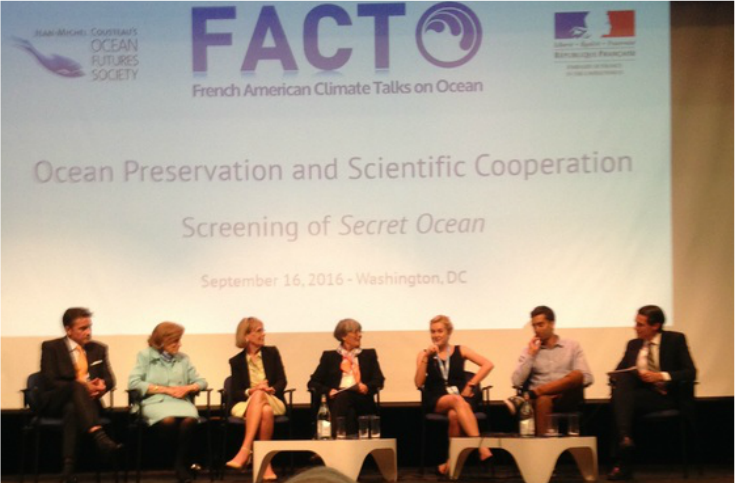

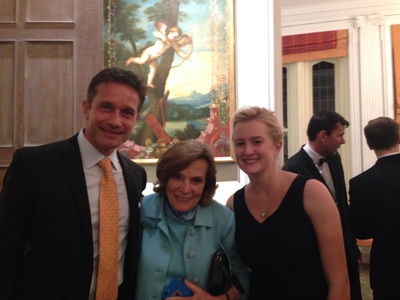
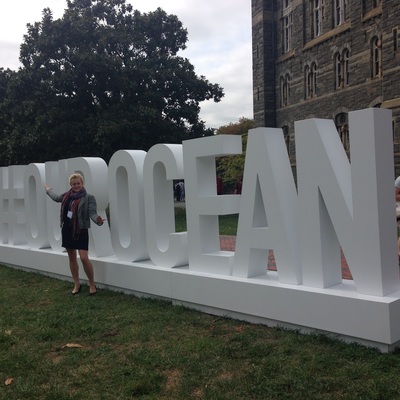
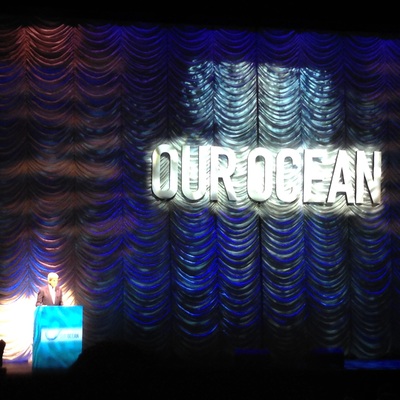

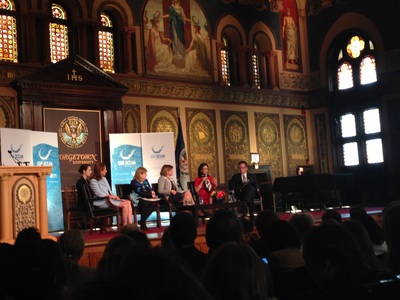
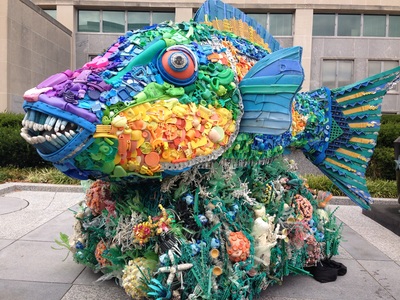
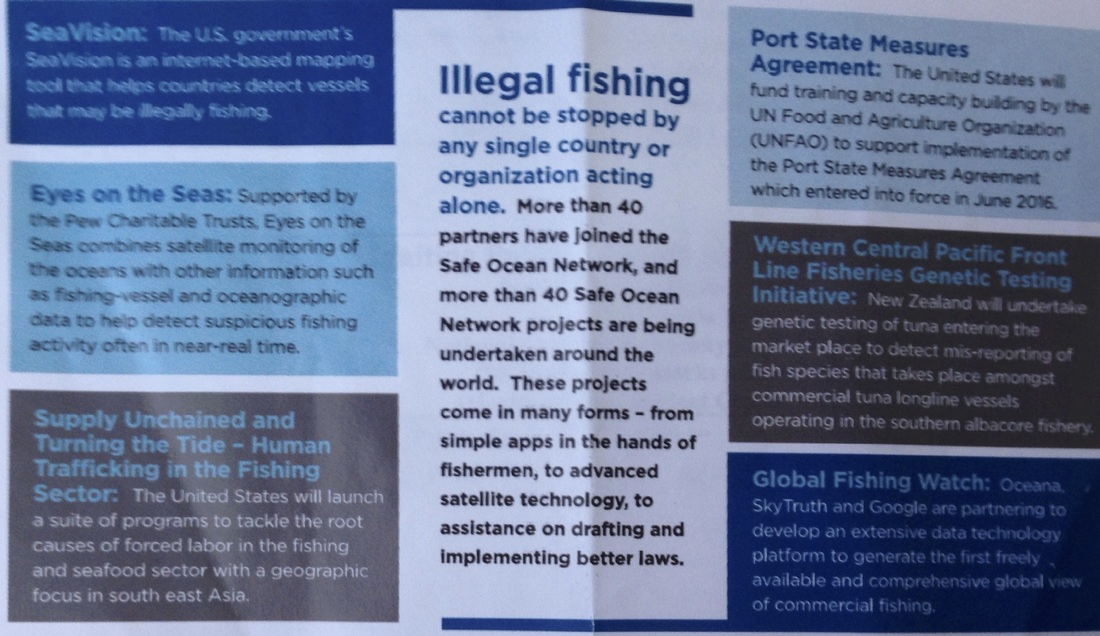
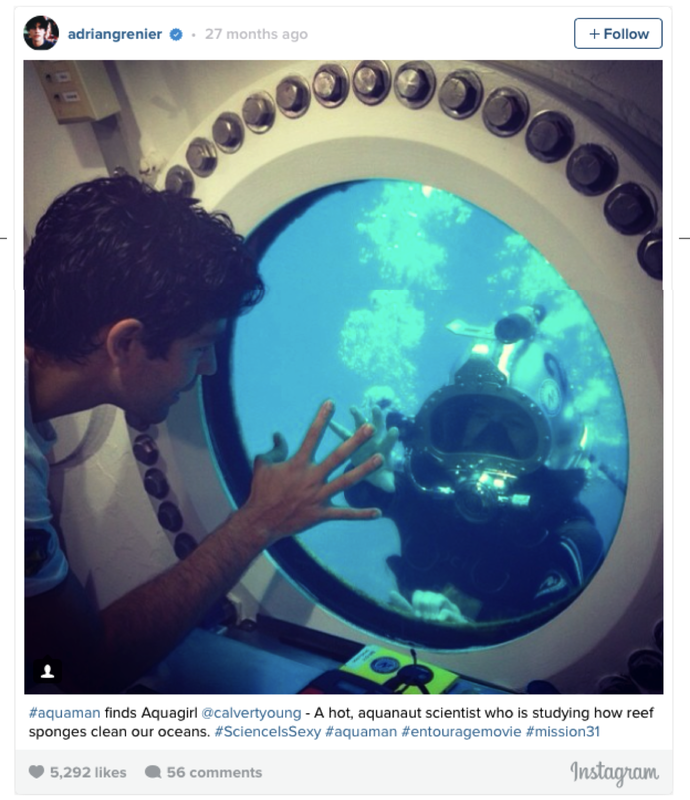

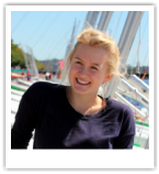
 RSS Feed
RSS Feed
